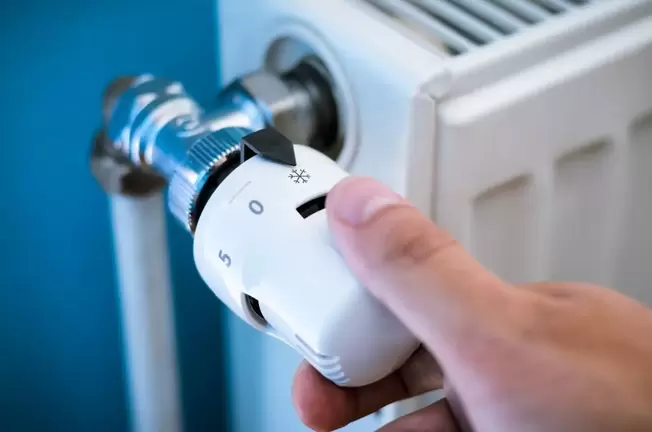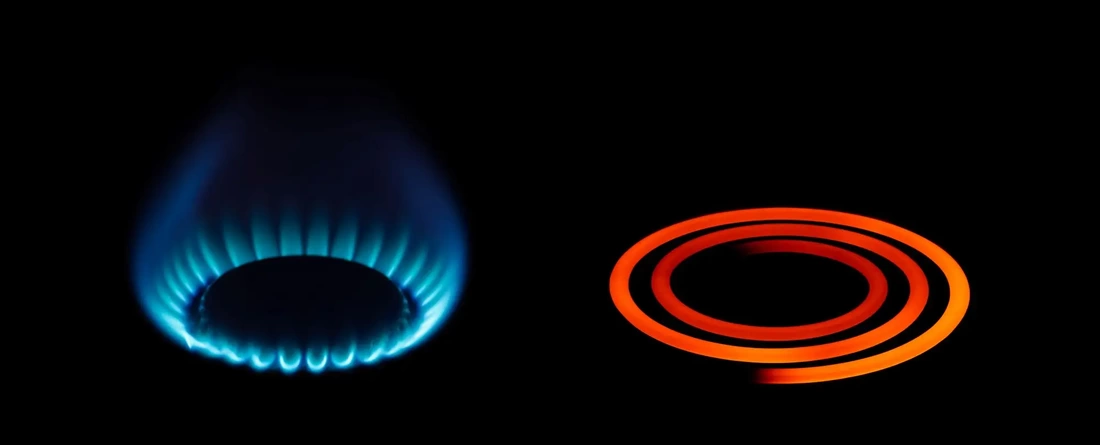How to save money on your energy bills
You could save up to £497 on your energy bills! |
|
We all want to spend less money on the energy we use at home.
But, alarmingly, only 8% of us actually trust energy suppliers to give us the best deals, according to findings from Populous Research for their Smart Energy Outlook report. Click here to switch to a cheaper energy supplier today. Put another way – 92% of us don't trust energy suppliers! Only 44 per cent of us believe we pay the right amount for the energy we use and just 53 per cent of us actually claim to understand our bills anyway. TRY SAVIING MONEY ON ENERGY BY SWITCHING So, finding out how to save a stack of cash on those bills might sound like something of a lost cause? Not at all. There are plenty of things we can all do to make a massive difference, whether we trust suppliers or not. Some of these are actions to make savings fast and some are all about making savings longer term. Making savings in the longer term can often involve spending money up front – but the savings later can often be huge. |
|
|
What can you do for free?
Then again, there are things that you can do to save on your bills FOR FREE. The NUMBER ONE way to save money is to SWITCH ENERGY SUPPLIER when they are no longer offering the deal that’s the best one for you. Or, it may simply be a case of switching to a different deal with your current supplier – one that’s more suitable for your needs. Most of us think of this process as difficult and time-consuming. And that means most of us let it slide and end up on the wrong tariff AND paying far more than we need to. But there is simply no point in taking all kinds of cost-cutting measures to bring down your energy use if you are on a tariff that's more expensive than it needs to be. The first action then is to arm yourself with some numbers – find out what you used in electricity and gas over the past 12 months. Few people have a clue about this, but it makes a big, big difference in the kind of tariff that’s right for you. If you don’t know how much you use, simply ask your supplier. It’s not about how much you paid, it’s how much energy you used. Luckily, our energy price comparison tool takes all the hard work out of the task of finding the right tariff for you. Enter your numbers and needs and it will offer you the best deals. Change how you pay for your energy Changing HOW you pay won’t cost you anything, but it could save you up to £90-odd a year, according to estimates. Energy suppliers love it if you pay a fixed monthly direct debit, which is based on a calculated estimate of your energy consumption spread over a year. This way you will typically overpay on the energy you use at certain times of year, mostly during the summer, and you’ll pay less than you use at times when you’re consuming more energy, typically during the winter. You may end up overpaying at the end of the year, but the balance will be carried over to the following payment period or refunded if you leave to join another provider. In the past, the amount you paid in direct debits could be somewhat hit and miss but new rules now say that energy companies must ensure they are reasonable. Even so, people who switch supplier for a cheaper tariff and also pay by direct debit often find their monthly payment has RISEN. This is simply because the yearly usage estimate has changed. So, it’s important to remember that if you use less than you pay for, you won’t lose the money. Obviously, not everyone can afford to pay in this way; but, if you can, it’s almost always to your advantage. DON'T GET RIPPED OFF ON ENERGY - SWITCH TO SAVE |
|
|
Don’t rely on estimates
Estimates, of course, don’t just apply to those of us paying by direct debit. If you don’t supply an electric and gas meter reading, then the provider will estimate how much power you’ve used and bill you accordingly. For many of us, especially those signed up with companies that demand seemingly constant readings, it’s tempting to let it go and allow the company do the work. But an estimate is rarely going to be in your favour. And, even if it is, a reading will be taken at some point and what you owe will become due. Far better then to keep on top of the amount of energy you are actually using, pay the correct amount and manage your bills that way. Claim any money you’re owed from your supplier Last year, Ofgem estimated some 3 million households were owed money by the big six energy suppliers – British Gas, EDF, SSE, Scottish Power, E.On and Npower. Ofgem ordered the companies to start paying the money back – an average of £50 a customer. Most commonly, this is the money that’s forgotten when people switch supplier. Ofgem estimates that over the last six years, around £153 million has been built up by companies. There is no time limit on when people can claim. If you believe you are owned money, you can contact www.myenergycredit.com. If you’re provider owes you money and hasn’t returned it, make your complaint now. Get a smart meter There are lots of gadgets that will help you monitor your power usage, but a smart meter can really make a difference. What’s more, we’re all entitled to one – although you may have to wait a while to get one installed because rolling them out to every home is a massive programme. Some 50 million meters are being fitted over six years. Only energy suppliers can supply and fit smart meters, so you’ll need to get in touch with your supplier and ask them to fit a meter. |
|
|
How exactly does a smart meter save you money?
In itself, the smart meter doesn’t save you money at all. But once people start seeing exactly what energy they’re using and what it’s costing, this has a profound effect on their habits. That’s the theory. Because you can see the cost of the electricity and gas you’re using in real time, it’s easy to see how this is affected by switching on (or off), a kettle, or lowering the thermostat, for example. Plus, the information is sent directly to your energy supplier who has no further need to ask for readings or estimate your bills – they can see exactly what you're using. Whether, in the longer term, we will all use less energy as a result of smart meters is less clear. What is without doubt, however, is that they do offer the consumer more control of their consumption. Use less energy Some of us are extremely careful about not wasting the energy we are paying for. But there are often extra measures to be taken that can save money – sometimes a considerable amount. Using less costs nothing, but it can be hard to remember to do it. Many of the steps you can take are small ones, but together can amount to serious savings. Checking all appliances are working efficiently is a good start. Fridges that are iced up are working overtime – defrosting them will help them to use less electricity, and prolong the life of the fridge at the same time. Other actions are pretty simple too. Turn off lights in unoccupied rooms, consider whether you could comfortably turn down the thermostat a degree or two. Some estimates suggest that each degree centigrade you turn down your thermostat represents a saving of up to £60 a year. Other tips are also common sense. For example, 90% of the energy used by a washing machine is from heating up the water. So, large amounts of money can be saved by washing at lower temperatures. COMPARING ENERGY PRICES IS AN EASY WAY TO SAVE |
|
Save £££ on your energy bills |
|
Investing to save money
Becoming more efficient in the way you use energy will undoubtedly save you money, but the really big savings will come from making your home itself more efficient, both in the way you use the energy that comes in and in the way you keep it there. Here you can invest in up-to-date appliances that are specifically designed to be energy efficient. Lighting accounts for 19 per cent of a household's electricity bill, so it's a good place to start. Even actions like replacing old light bulbs with energy saving ones represents an investment –you’re paying more initially, but these bulbs will last 12 times as long and use 80 per cent less energy during their lifetime. Each energy-saving bulb you install can save you roughly £120 over its lifetime, according to the Energy Saving Trust, and can knock £55 off your yearly bill. However, the really big areas to focus on that will save serious money are: your boiler and insulation. An efficient boiler Replacing an old and inefficient old boiler can result in serious savings. Buying a new one can be expensive, typically around £2,000 or more. But a new one with the highest efficiency rating can mean savings of hundreds of pounds a year compared to the least efficient. Boilers have energy efficiency ratings, with A being the most efficient and G, the least. The difference between a G and an A boiler could represent a saving of around £310 a year, according to the Energy Saving Trust. So, even with such a sizeable investment, the payback, over time, can make it worthwhile. |
|
|
Insulation
Insulating your home correctly can save huge amounts of money. Insulating lofts This is one of the easiest and most effective measures you can take to make heating your home more efficient. Even if you already have insulation, it’s wise to check you have enough. The recommended depth is 270mm. According to the Energy Saving Trust, adding insulation to go from a layer that’s 100mm thick to one that’s 270mm can mean an average extra saving of £25 a year. If you have none to start with, installing insulation will make a big difference. Again, according to the Energy Saving Trust, installing 270mm of loft installation in a detached house, which might cost around £385 to do, can lead to energy-cost savings of £240 a year. In a mid-terraced house, the cost would be around £285 and the savings around £135 a year. The initial outlay, then, is rapidly covered. Insulating walls Around a third of the heat lost by an uninsulated home is lost through its walls, says the Energy Saving Trust. No surprise then that having well-insulated walls is a wise investment. Heat always moves from warm to cold areas – and that’s usually outside, certainly in winter. Houses built in the last 25 years should have insulated walls. If you don’t have them because you’re in an older property, this is a great place to start making your home more efficient. You can save around £140 a year on an average house just by insulating cavity walls. Double glazing Double glazing is an expensive option, but not only does it preserve heat in the home, so cutting energy costs, it also massively reduces condensation which will, over time, damage paintwork and woodwork, as well as looking unsightly. On top of that, it will make your home quieter Putting in double glazing in a single glazed home could save up to £135 a year for a detached house and up to around £50 a year for a flat. The initial outlay, however, is high and the payback will most likely take a fair number of years. If you do install double glazing, it’s important to know what you’re buying and how efficient it is. Many makers display this information. A rating that ranges from A+ to G is used, where A+ is the most efficient. More information can be found at the British Fenestration Rating Council. |
|
|
Double-glazing alternatives
If double glazing is not possible for whatever reason, alternatives include secondary glazing. This is a second pane of glass, or second window, fitted over the existing windows and frames. While this is less efficient than double glazing proper, it will still cut down on heat loss through windows. Heavy curtains Hanging heavy curtains that hang to the floor will also help to keep heat in the home and will be especially effective if they are also lined with insulating material. START SEARCHING FOR THE BEST SERVICE AND PRICES Draught proofing This is a cheap but highly effective way of cutting down on heat loss – in this case it’s about keeping the cold out. Stand in front of a key hole on a cold day or by an unsealed door and the amount of cold air blowing in to a room can be dramatic. The best way to help prevent this unwanted ventilation is to seek out the draughts and seal them with cheap and readily available excluders. The fewer the draughts the warmer your home will feel and the lower you can then set your thermostat. Excluding draughts effectively can save between £25 and £50 a year, according to the Energy Saving Trust. |
|
|
What you should check
Windows and doors, including key holes and letter boxes. Pipework that leads outside the home. It's important, however, that while searching out these draughts and stopping them that you avoid blocking essential ventilation, such as flues for fires, or vents built into walls. If in any doubt, you should always consult a professional. Tanks Pipes and radiators These can often be overlooked, but lagging water tanks and pipes can have a big effect on reducing heat leakage – cut that and you’ll spend less on paying to heat water and radiators – and the water in your hot water tank will stay hot for longer. Not only that, it’s also one of the easiest and cheapest things you can do to cut down on the amount of energy you use. The thickness of a jacket round a water tank should be a minimum of 75mm. If you fit a new one, make sure it is British Standard. It could cut heat loss by over 75% and save up to £35 a year – that’s more than the cost of a water tank jacket. Fitting insulation around exposed pipes couldn’t be easier, so long as the pipes are accessible. If they’re not, you will need professional help. For more handy, money saving energy tips and guides, visit our energy page. With A Spokesman Said, you’ve got power in your pocket. |
|
You could save up to £497 on your energy bills! |






